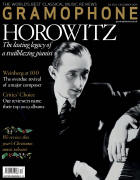Texte paru dans: / Appeared in: |
|
|
Outil de traduction (Très approximatif) |
|
|
Reviewer:
Jonathan Freeman-Attwood Among the deluge of Baroque solo cantatas from 18th-century Italy – most celebrated in the elder Scarlatti’s Neapolitan output – there’s a rich seam of contemporary German parodists who made the genre their own. In the case of Carl Heinrich Graun (and his younger brother, Johann Gottlieb), Italian virtuoso cantatas for superstar castratos would have formed a deep impression during his apprenticeship years in Dresden, to be revisited in mid-century Berlin at the behest of Frederick the Great. These three cantatas – two of which cannot be attributed with certainty to either brother – reveal highly accomplished and mature Baroque stylists working in the customarily amorous Arcadian manner, and yet also adopting dramatic mythological shards of operatic proportions. The central work is in the latter vein, Apollo amante di Daphne – gently scored and exploiting a variety of registral coloration which, arguably, best suits the responsive and clear-toned singing of Hannah Morrison. The coloratura elsewhere is efficient, if never spectacular and the upper reaches not always convincing. But this is a voice that unerringly delivers textual sentiment with intelligence and an elegance devoid of mannerism. The playing of Frankfurt’s Main-Barockorchester provides disciplined and lively accompaniments for Morrison, the collective ensemble operating most persuasively in the fine cantata Lavinia a Turno. With its text fashioned from the Aeneid, Graun (and this is Carl Heinrich, for certain) propels its cautiously galant strains towards Lavinia’s agonising fate as she follows the will of her father and marries Aeneas – recently fled from Troy and whom she does not love. The final aria is a form of ‘rage’ aria, as her lover turns his back and Lavinia exclaims ‘resto vittima del dolor’ (I remain the victim of this agony). This is where the music needs lifting from the page with visceral projection and character, rather than the studious placement it receives here. Nevertheless, this recital offers a pleasing exposé of a conservative but eminent Kapellmeister in the generation before JC Bach and Haydn. |
|




